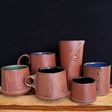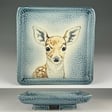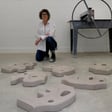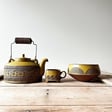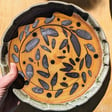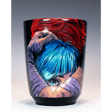
Mastering Carved Pottery with Molly Walter
In this episode of Shaping Pottery, Nic interviews Molly Walter, a passionate potter and artist who transitioned from various art forms like painting, drawing, and sculpture into the world of ceramics. Molly shares her philosophy on abandoning the 'one right way' of pottery, encouraging experimentation and personal growth. She discusses her journey to becoming a full-time potter, the challenges and joys of carving pottery, and the importance of hands-on repetition. Molly emphasizes the significance of trusting oneself, embracing failure, and finding inspiration from the unexpected. Through her colorful and carved pottery, she discovers new artistic expressions. Molly also touches on her experiences studying abroad in Denmark, being part of art communities, and offering practical advice on how to develop one's unique artistic voice. You can learn more about Molly by checking out her instagram https://www.instagram.com/mogrizzles/
Get your 53 themes by clicking this link shapingyourpottery.com/53themes
Check out the shaping your pottery website for more tips https://www.shapingyourpottery.com/
00:00 Introduction and Pottery Philosophy
01:01 Journey into Pottery
02:04 Artistic Influences and Techniques
04:44 Studying Abroad and Personal Growth
06:18 Carved Pottery: Origins and Techniques
16:01 Business Side of Pottery
22:43 Discovering Your Unique Voice
29:52 Final Thoughts and Advice

